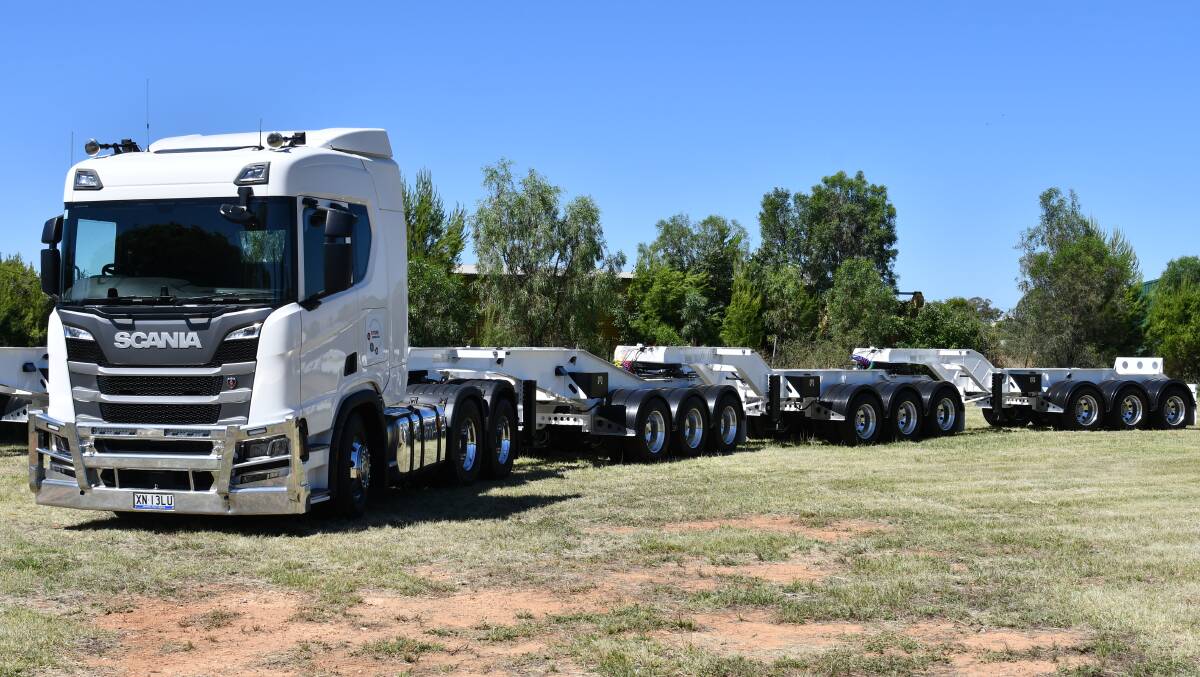
Those behind a nation-building renewable energy project have turned to the expertise of a truck trailer manufacturer in Parkes and it's something that's never been done in Australia before.
Subscribe now for unlimited access.
$0/
(min cost $0)
or signup to continue reading
The Snowy 2.0 project is the largest committed renewable energy project in the country that will provide on-demand energy and large-scale storage for generations to come.
It involves linking two existing dams, Tantangara and Talbingo in the state's south, through 27 kilometres of tunnels and building a new underground power station.
Water will be pumped to the upper dam when there is surplus renewable energy production and the demand for energy is low, and then released back to the lower dam to generate energy when electricity demand is high.
It will recycle the water in a closed loop and maximise the efficiency of renewables by using excess solar and wind energy to pump water to the higher dam, to be stored for later use.
The first power generated from Snowy 2.0 is expected in early 2025.
How Midland Industries comes into the picture is this Parkes-based business has been called upon to design and build 14 sets of custom-made trailers.
That's 42 trailers in total.
The work has 28 people on the job - the company employing an additional eight and still in need of more, particularly welders - and has injected $9 million into the local economy.
Midland Industries sales manager Roy Trimmer said it was the company's reputation that caught the eye of the project team, first approaching them in February 2019 with the need to transport 63 tonnes of concrete segments per load.
"We met with them in Sydney in August 2019 with a solution they needed," Mr Trimmer said.
"Initially it was going to take 45,000 trips, we got it down 15,000 trips."
The Parkes crew have been on the job ever since.
Six trailers have been completed, three more are in 'fit-out' and 33 are yet to be built.
"Seeing them roll-out the door [on Tuesday] was pretty rewarding," Mr Trimmer said.
"It was surreal but it's just the tip of the iceberg."
These trailers are far from ordinary - the completed truck and trailer combination is 26.5m long and 2.5m wide, the same size as a B-double.
But they have three short trailers, extremely manoeuvrable so they can negotiate the winding roads and 15 per cent decline of the Snowy Mountains, as well as roundabouts in town, and built to handle 12 kilometres of gravel road to the project site.
The trailers have three axles each, totalling nine, and the prime movers have three axles, a total of 12 for each truck and trailer combination.
There are 46 tyres per combination.
The gross weight when loaded is 91 tonnes - 63 tonnes of segments plus packing supports, this weight distributed over the axles so there is less impact on the road surface.
Designing and testing something of this magnitude didn't come easy.
Mr Trimmer said $400,000 was spent on research and development.
They conducted simulations where a virtual model of the road the trucks would travel was drawn up and transport consultants Smith Global in Queensland ran the trucks through the program 60 times.
"We let the computer do its thing every day for 60 days," Mr Trimmer said.
Up to 130,500 concrete segments will be produced at a factory in Polo Flat, Cooma, to line the 27 kilometres of waterway tunnels for Snowy 2.0.
Each segment is about 6.5 tonnes and will be placed into the tunnels by the tunnel-boring machine as it excavates.
"The Snowy Mountains Scheme has always been synonymous with Australian innovation and high quality engineering. Snowy 2.0 follows on from this legacy," Snowy Hydro relations manager Dean Lynch said.
"Midland Industries is just one example of a seriously clever solution to a complex problem.
"The innovative segment trailer design from Midland can accommodate nine, 6.5 tonne precast concrete segments, rather than the three segments originally planned.
"This reduces heavy vehicle traffic impacts by about two thirds.
"The special trucks benefit the community through less traffic, safer roads and minimising the impact on the local environment.
"[Snowy 2.0] will create 4000 direct jobs over the lifetime of the project, and thousands more supply-chain jobs by partnering with local businesses across Australia."
Midland and Future Generation are developing a lashing system to tie and lock each package of three segments to each trailer with hydraulic tensioning control and a warning light to the driver of any pressure reduction.
No manpower is required for the operation, only a forklift and the driver managing a control on the trailer from ground level.
It is a new system.


